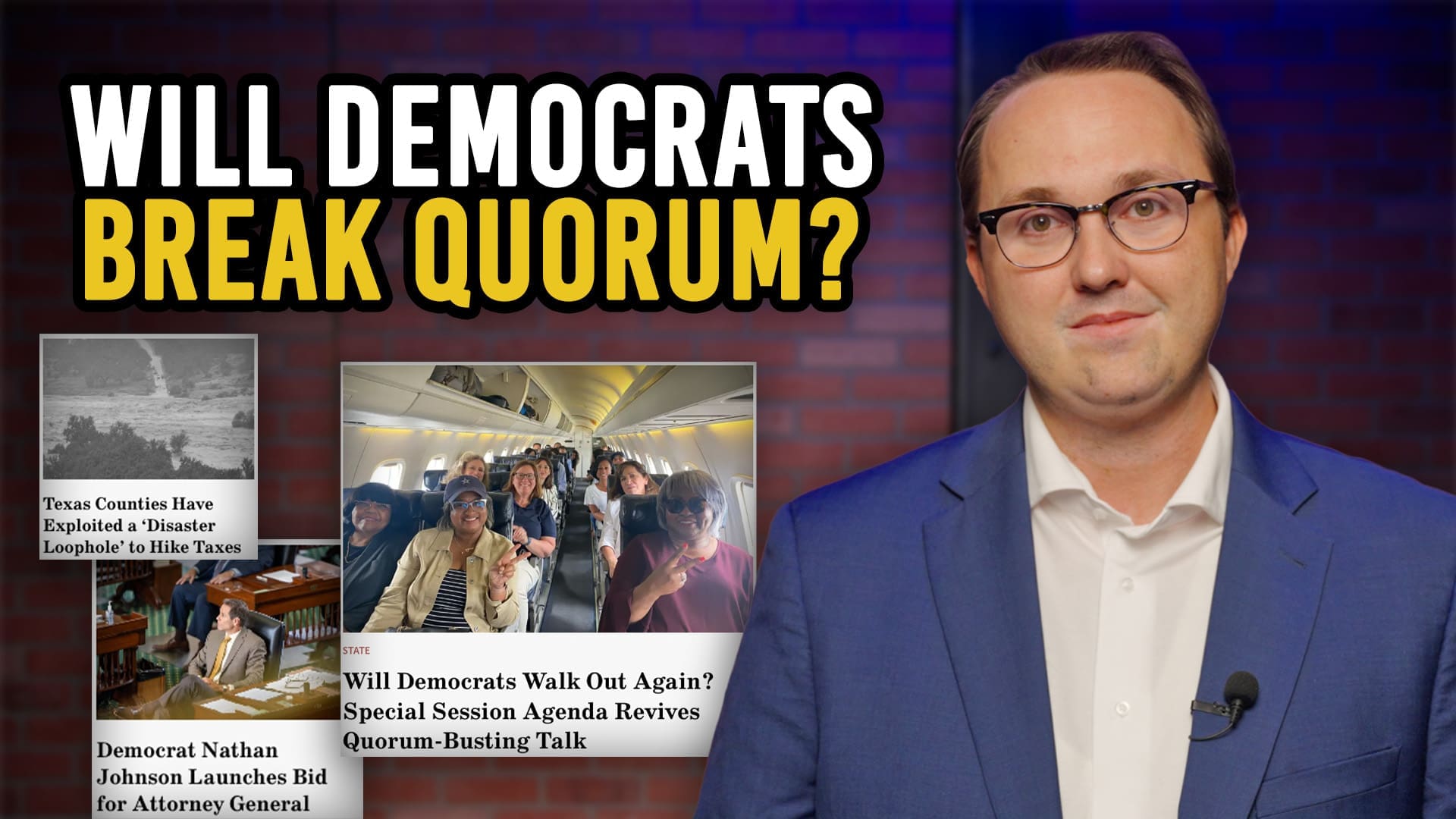Joe Straus and Byron Cook threw their own going away party this week and only invited their friends.
When Joe Straus announced the formation of the Select Committee on Economic Competitiveness, many dismissed it as an obvious attempt to justify his opposition to conservative social and fiscal policies and make the absurd case that releasing criminal aliens onto the streets, continuing corporate handouts, increasing government spending, and bringing the LGBT agenda into our public schools is somehow “pro-business.”
These suspicions were confirmed when Cook, who chairs the committee, deviated from House practice and refused to allow me and other members who were not on the committee to ask questions. The committee was a show, a carefully-orchestrated farce with a predetermined outcome. Unfortunately, by shutting out dissenting views, the committee won’t hear about the actual key to Texas economic competitiveness—the conservative fiscal and social policies that has led to an influx of new residents and hundreds of billions of dollars in economic growth.
Since 2005, Texas has seen sustained growth of over 100,000 net new residents per year. Meanwhile, California has seen sustained net losses of over 100,000 residents per year to other states. There was a net migration of 250,000 people from California to Texas alone between 2004 and 2013. Data from the May 2012 and February 2013 UT/Tribune surveys shows that 57 percent of these California transplants consider themselves to be conservative, while only 27 percent consider themselves to be liberal, the opposite of what one would expect given the partisan makeup of California. People are moving to states that reflect their values in policy and people are moving to Texas and away from California and other liberal havens at an unprecedented rate.
What does this mean for our economy? All else equal, each new resident of Texas is responsible for $54,000 in economic impact per year, or $540,000 over a 10-year period. That means that growth of 1,000,000 net new residents over 10 years like we have seen represents $540 billion in long term economic growth.
Policy-makers are quick to point to fiscal policy as the key driver of this phenomenon. Certainly, our low-tax, laissez-faire approach to policy-making is a factor. But so is our social policy. People place a value on not having to pay income tax on our earnings. But a middle-class family also places a value on being able to send their child to a public school where she will not be exposed to transgender sex education in kindergarten. A health care worker places a value on working in a state where he will not be jailed for using the incorrect gender pronoun. People place a value on being protected from the bad acts of criminal aliens that a sanctuary state would release onto the streets.
Making Texas look more like California fiscally or socially is not a recipe for economic success. Even groups like the Texas Association of Business, which advocates for open borders and the LGBT agenda, acknowledges that social policy affects economic decisions. It just gets the analysis wrong. For example, the TAB completely ignores the enormous economic impact of migration to the state and focuses entirely on myopic studies based on anecdotal statements from a small sampling of individuals claiming they wouldn’t engage in certain transactions if a particular piece of legislation is passed. This methodology is akin to concluding hurricanes are economically beneficial based on evidence they cause generator sales to go through the roof. It focuses on too small a sliver of the economy to be reliable and ignores the big picture. Even the most generous of these studies claim $5.8 billion in transactions lost over a 10-year period, which pales in comparison to the hundreds of billions of dollars at risk if we adopt policies that stop attracting new residents to the state.
So, why would we want to adopt policies to make us look more like California?
Why has no study been conducted on the impacts of social policy on net migration?
Why are the studies that have been trotted out focused on such a small sliver of economic activity?
None of these questions were asked at the hearing of the House Select Committee on Economic Competitiveness today because members were not allowed to question witnesses. I do hope the new Speaker will choose to examine these issues in a thorough and serious manner. But this committee is nothing more than the legislative version of a kangaroo court, rather than an actual investigation of economic competitiveness.





